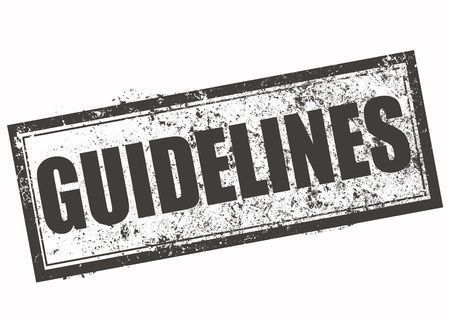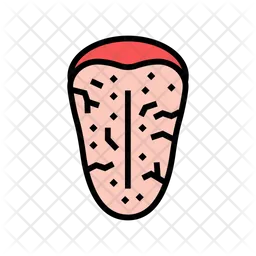Pronounced “SHOW-grins,” Sjogren’s syndrome is a chronic autoimmune disorder that mostly affects the exocrine glands but affects other regions of the body as well. These glands are in charge of secreting tears and saliva, which are forms of moisture. Lack of moisture production is the hallmark of this condition, resulting in symptoms like dry mouth and eyes. Let us examine the definition, pathophysiology, and etiology of sjogren’s syndrome in more detail.

Unravelling the Pathology of Sjogren’s Syndrome
Exocrine glands in the body are the main focus of sjogren’s syndrome. Under this scenario, the glands are wrongly attacked by the immune system, which views them as foreign invaders. The glands suffer inflammation and damage as a result of this ongoing inflammatory reaction, which lowers their capacity to produce vital moisture.
Sjogren’s syndrome can cause more than only dry mouth and eyes. The skin, lungs, and digestive tract are among the numerous organs and systems that could be impacted. This broad effect emphasises how crucial prompt diagnosis and treatment are.
Understanding the Causes of Sjogren’s Syndrome
Although the precise etiology of sjogren’s syndrome is still unknown, a number of ideas indicate that a mix of environmental and genetic factors may be involved. Known risk factors include some of the following:
1. Genetics: Sjogren’s syndrome development may be more likely in families with a history of autoimmune illnesses.
2. Gender: Nine times as many women as men are affected by the condition, placing them at a markedly increased risk.
3. Age: While sjogren’s syndrome can manifest at any age, individuals between the ages of 40 and 60 are the most frequently diagnosed.
4. Other Autoimmune Diseases: People who suffer from scleroderma, lupus, or rheumatoid arthritis may be more susceptible to sjogren’s syndrome.
5. Viral Infections: A higher chance of developing sjogren’s syndrome has been linked to certain viral infections, including the Epstein-Barr virus.
Understanding these causes and risk factors can help individuals and healthcare professionals recognize probable cases earlier, leading to more effective therapy.
Recognizing the Signs and Symptoms
The symptoms of sjogren’s syndrome are numerous and might differ from person to person. Typical indications and manifestations include of:
1. Dry Eyes: Prolonged irritation, dryness, and a grainy sensation in the eyes.
2. Dry Mouth: Enhanced risk of dental problems, difficulty speaking and swallowing.
3. Swelling of the Gland of Saliva: Swollen salivary glands, which are frequently accompanied by cheek pain or tenderness.
4. Fatigue: Severe, sometimes incapacitating weariness and exhaustion.
5. Joint Pain: Joint edema and pain might resemble arthritic symptoms.
6. Skin Problems: Dry, itchy skin that is frequently made worse by dry, chilly air.
7. Vaginal Dryness: Women may have this condition, which can cause pain and discomfort when they are having sex.
8. Lung and Digestive Tract Problems: Sjogren’s syndrome can occasionally have an impact on the lungs and digestive system, leading to conditions like gastrointestinal distress and dry cough.
It is crucial to remember that there might be variation in the intensity of these symptoms; some people may just have slight discomfort, while others may experience more severe effects.
Diagnostic Investigations for Sjogren’s Syndrome
Sjogren’s syndrome diagnosis necessitates a thorough assessment by a medical practitioner. Usually, a combination of the patient’s medical history, a clinical examination, and certain tests, like:
1. Blood Tests: Searching for certain antibodies, such as anti-SSA (Ro) and anti-SSB (La) antibodies, linked to sjogren’s syndrome.
2. Schirmer’s Test: This easy-to-use test inserts tiny filter paper strips beneath the lower eyelids to gauge tear production.
3. Salivary Gland Biopsy: This technique involves taking a tiny sample of salivary gland tissue and looking for indications of inflammation.
4. Imaging: A salivary gland’s health can be determined with the use of X-rays, ultrasounds, or other imaging methods.
5. Oral and Ocular Tests: Using particular questionnaires and clinical observations, this test evaluates dryness in the mouth and eyes.
Determining the proper management and treatment for persons with sjogren’s syndrome requires a thorough diagnosis.
General Management and Potential Role of Homeopathy
A multifaceted approach is necessary to manage sjogren’s syndrome, with the main goals being symptom relief and avoidance of consequences. Conventional therapeutic approaches frequently consist of:
– Artificial Tears and Saliva Substitutes: These may provide some relief from symptoms related to dry mouth and eyes.
– Medication: To control the autoimmune reaction, doctors may prescribe immune system suppressors and anti-inflammatory medications.
– Modifications to Lifestyle: Using humidifiers, maintaining good dental hygiene, and drinking plenty of water can all help control symptoms.
– Pain Management: To treat pain and discomfort, over-the-counter or prescription painkillers may be required.
– Physical Therapy: Exercises for physical therapy can help with joint pain.
– Dental Care: To avoid dental issues, routine cleanings and examinations are crucial.
Now, let’s analyse the potential function of homeopathy in addressing sjogren’s syndrome.
Homeopathy: A Holistic Approach
Homeopathy is an alternative treatment that treats the patient as a whole, not just the ailment. It is predicated on the idea of “like cures like,” according to which a drug that produces symptoms in a healthy individual can be used to treat those same symptoms in an unwell person. Highly diluted compounds, commonly sourced from plants, minerals, or animals, are used in homeopathic treatments. Personalized remedies chosen by a qualified homeopathic practitioner are essential to successful homeopathic treatment.
The fact that homeopathic remedies are frequently tailored to each patient’s particular mix of symptoms and constitution is an essential point to keep in mind. A key component of homeopathy is personalization, which can result in various treatments for various people, even if they have the same ailment.
Homeopathic Medicines for Sjogren’s Syndrome
1. Nux Moschata: This remedy is effective for extremely dry skin and mucous membranes, and it also relieves the peculiar symptom of tongue adhering to the roof of the mouth. Its potency ranges from 3C to 6C; take three to five pills three times a day.
2. Belladonna: Available in potencies ranging from 30 to 200C, take three to five pills thrice daily. Beneficial for dry mouth and conjunctival redness; exacerbated by touch, noise, and drafts.
3. Sepia Officinalis: Treats vaginal dryness and irritation; comes in potencies ranging from 12 to 200C; take three to five tablets three times daily.
4. Bryonia Alba: Take 3-5 pills of 3C to 12C potency three times a day. This remedy is effective for parched lips, dry mouth, tongue, and throat with excessive thirst; symptoms intensify in the morning, during meals, in hot weather, and after physical activity.
5. Sulfur: Good for dry, bright red, burning lips and dry, scaly, unhealthy skin that itches and scratches; symptoms get worse when you sleep, stand for extended periods of time, wash, take a bath, or rest; potencies range from 30 to 200C; take three to five pills daily.

Conclusion: A Unique Remedy for a Unique Condition!
In summary, exocrine gland dysfunction is the main cause of sjogren’s syndrome, a complicated autoimmune disease that manifests as dry mouth and eyes. Although traditional medical interventions are crucial in the management of this illness, some people have looked toward homeopathy as an adjunctive strategy to reduce particular symptoms and enhance their general health.
Seeking homeopathic remedies for Sjogren’s syndrome requires speaking with a qualified professional who can offer tailored advice and incorporate homeopathy into your overall treatment regimen. To guarantee the finest care for your illness, put safety first and communicate openly with your medical team.
This article is for information purposes. It’s crucial to note that while homeopathy is a centuries-old practice with many adherents worldwide, always consult a qualified homeopath or medical professional before initiating any treatment.
For any queries, reach out to us at contact@homeopathic.ai





